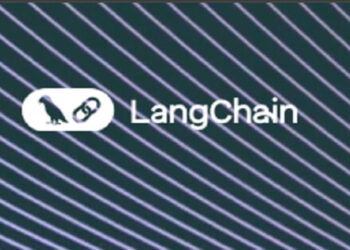Data-driven decision-making has gained meaning and importance in the age of big data, but that doesn’t mean everything always goes as smoothly as it should, both for businesses and consumers.
Sure, business intelligence tools have immense capabilities to filter, sort, analyze, and interpret the reams of data generated daily. However, business intelligence tools are only as effective as the underlying data structuring. For businesses with mountains of unstructured data, deriving insights from this pile of information requires tremendous effort and time. Meanwhile, end-consumers more frequently have questions about sourcing raw materials and product origin.
Given these different but highly interrelated demands, the importance of gathering data and making it easily callable take on a newfound level of significance in the digital age. Considering these requirements, blockchain technology delivers a potent architecture to match these needs.
Adding A Layer of Trust To Data
Technology is key for unlocking the potential of data, and enterprises selling products to other businesses and consumers stand to benefit greatly from its application to decision-making. Here, blockchain has a novel application due to its innate tracking abilities and embedded ledger, assuring that data appended to the blockchain is verified and cannot be changed in the future (immutable).
For businesses with multiple production processes, sourcing requirements, and data-driven departments, harnessing all this data in a transparent and accessible format creates numerous efficiencies. Moreover, it provides a tamper-proof chain of unbreakable information, adding more trust to the validity of the underlying data.
For Authtrail, the answer to calls for greater data monitoring capabilities lies in applying blockchain technology. Through an enterprise implementation with Germany-based IBO GmbH, Authtrail’s digital product passport (DPP) tracks products through every stage of the manufacturing process or production lifecycle, granting companies and consumers unparalleled insight into the end-to-end activities.
For a company like IBO that counts aerospace and defense companies among its client portfolio, product end users must understand how raw materials are sourced, the product specifications, and most importantly, verify authenticity to ensure products meet stringent quality control standards. However, IBO’s newfound transparency is just one small example of a sea of possibilities for this type of blockchain-based solution.
Better data integrity means newfound opportunities for companies to evaluate processes to find areas for improvement, optimization, and risk mitigation. For example, imagine that a manufacturing process is found to be faulty and unreliable through testing data. Not only can a company proactively ensure that all products that underwent the process are more rigorously tested to ensure their quality conforms to established criteria, but they can also avoid unwanted recalls their harm their reputation and trust with customers.
Building more granular information is possible with Authtrail’s QR tags, which can retrace a product’s footsteps from the initial sourcing of raw materials. But more importantly, since all new information per tag is immediately uploaded to the blockchain when scanned, every single product component can be tracked, all from a single location. Besides the resulting productivity gains stemming from a highly connected ecosystem, this information is readily shareable in an organized format.
For businesses where quality control or regulatory compliance is an absolute necessity, this enhanced visibility can pay dividends across multiple areas, whether decreasing oversight costs, identifying areas to reduce risks in processes, or simply sharing data with regulators. But businesses themselves are not the only beneficiaries of this newfound transparency and data validation. Consumers also have an elevated opportunity to gain valuable information about products and their origins.
Improved Relationships As A Function Of Transparency
While it may be easy to see the enterprise benefits arising from the incorporation of blockchain, consumers are also part of the balance. Given increased demands for information regarding the sourcing of products, the origin of raw materials, and the integrity of finished products, readily available data from the manufacturer are vital for strengthening the relationship with end consumers.
For one, the response time for a manufacturer or distributor to call up this information on-demand when requested by a customer can be shortened dramatically, thanks to the scannable QR code, which tracks the entire product lifecycle. Besides blockchain’s ability to transparency reassure end-users of the integrity of the information contained therein, it also provides a measurable way for customers to validate that they have received the authentic product and not a cheap knock-off. Together, these characteristics amount to reputation.
For manufacturers of goods that are frequently counterfeited, the ability to use a digital product passport conveys innumerable benefits, not the least of which is verification. This cost-effective and efficient way to track products ends up supporting greater assurances for end-users, not to mention trust. Moreover, these QR codes are all unique and immutable, making it impossible for someone to make unauthorized changes to the data, again providing greater protections for consumers.
Taken together, these innate attributes of blockchain technology can strengthen relationships with customers or business partners, building a solid foundation for future collaborations, not to mention a demonstrable edge in competitive business segments. Ultimately, trust is a function of transparency and validity, and blockchain’s ledger structure promotes data integrity, making it a formidable technology in the hands of all product lifecycle stakeholders.
Credit: Source link












































